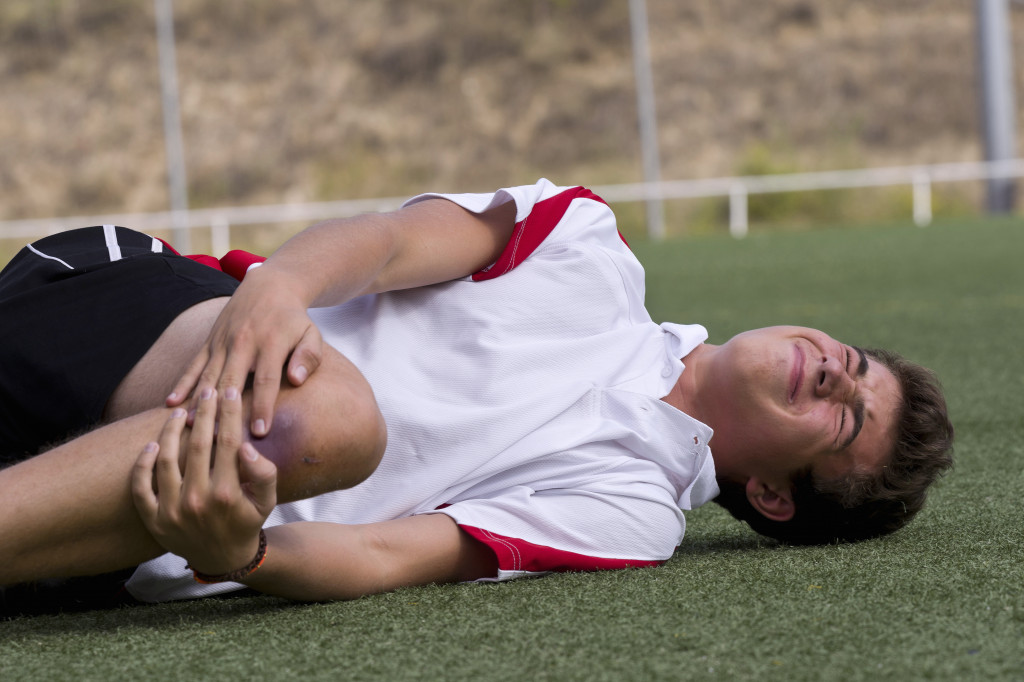Many athletes face the unfortunate reality of sports injuries. While some are minor and can be treated with rest, others require more extensive medical attention. No matter how serious the injury, it’s essential to take the necessary steps to recover properly and get back on the field. Let’s look at how you can best approach recovering from an extensive sports injury.
1. Undergoing Medical Treatment
The first step in recovery is getting medical treatment from a professional. Depending on the injury, this could mean seeing a physical therapist or visiting an orthopedic specialist for further evaluation and treatment. It is essential that you get proper medical advice to ensure that you don’t aggravate the injury while attempting to heal it. Be sure to follow all instructions provided by your doctor and keep up with any appointments they may have scheduled for you during your recovery process.
Some people also suffer dental injuries, especially in contact and high-impact sports such as football and hockey. In these cases, it’s important to visit a dentist or oral surgeon and receive the appropriate treatment as soon as possible. If you lose a tooth or more, you might need dental implants or other tooth replacement options to restore your smile. They can also help to prevent jaw or facial alignment issues that sometimes occur after a dental injury.
2. Resting & Rehabilitation
Once you have received medical treatment, it is time to start resting and rehabilitating your body to heal properly. Resting ensures that your body has enough time and energy to focus on repairing itself; however, complete rest isn’t always possible when dealing with a severe sports injury. That is why rehabilitation exercises are also important – they help strengthen weakened muscles and tendons while helping reduce pain levels so that you can eventually return to playing safely after healing.
Make sure you go through these exercises as your doctor prescribes for optimal results. You may also need to use assistive devices such as crutches, braces, or slings during this time to help you move around without aggravating your injury. If you’re having trouble remembering or performing a certain exercise, don’t be afraid to ask your therapist for assistance. They can also provide you with tips and advice on how to best take care of yourself during your recovery process.

3. Mental Healing & Support Systems
It is also essential to pay attention to the mental aspect of healing from an extensive sports injury and the physical one. Many athletes feel frustrated when they have been sidelined due to an injury; these feelings can be compounded if they cannot participate in their favorite sport while they are healing or if their rehabilitation process takes longer than expected. The best way to manage these emotions is by building up a support system of coaches, family members, friends, etc., who understand what you are going through and offer emotional support throughout your recovery process.
Some people also find that keeping a positive attitude can help motivate them to stay on track with their recovery. Remember that full recovery takes time and that staying patient during the process is important. Many athletes also find comfort in knowing that there are programs and activities specifically designed to help them recover from their injuries, such as sports psychology sessions or specialized rehab camps.
4. Eating Healthy
Good nutrition is essential to recovery and restoring the body to its normal functions. Eating healthy, nutritious foods regularly helps the body to heal quicker and more efficiently. Make sure to stay hydrated by drinking plenty of fluids, and be mindful of your portions when it comes to eating meals. Eating smaller meals more frequently throughout the day can also help keep your energy levels up, which is important when rehabilitating an injury.
It is also important to avoid processed foods and opt for natural, healthy alternatives such as fruits, vegetables, and lean proteins. These are all packed full of vitamins and minerals to help your body heal faster, so make sure to include them in your daily diet. You can also consult with a nutritionist to get advice on what foods are best for your particular situation.
Recovering from an extensive sports injury can be difficult but not impossible. Following proper medical guidance combined with active participation in rehabilitation exercises will help ensure that athletes make a safe return back onto the field after completing their recovery journey. Always remember to keep your mental and physical health in check, eat a balanced and nutritious diet, and lean on your support systems for help along the way. With the proper support, patience, and dedication, you can fully recover and return to the sport you love.

